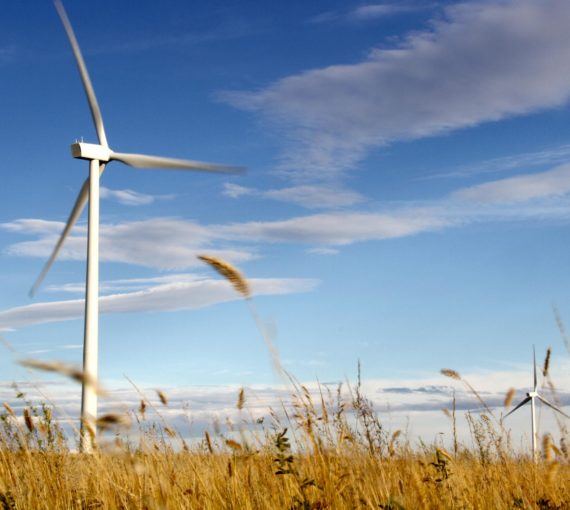Now is the time for Ontario to invest in renewable energy.
The Ontario government is proposing to repeal the Green Energy Act — which was introduced in 2009 to advance the province’s solar and wind energy supply — with Bill 34, the Green Energy Repeal Act.
Despite the provincial government’s claim that this repeal will cut costs, it is actually harmful to the people of Ontario.
This bill and the cancellation of some 750 renewable energy contracts will:
- deter investment in the province
- deprive Ontarians of low-cost electricity sources and
- kill local jobs.
Investment
First, let’s talk about investment.
Globally, renewable energy is an enormous sector.
How big is it? In 2015, twice as much international capital was invested in clean energy as in fossil fuels.
Since 2010, 50 per cent of private finance in infrastructure (US$1.3 trillion) has been directed to renewable energy. That’s a staggering sum of money. And that statistic doesn’t come from environmentalists. It comes from the Organisation for Economic Co-operation and Development.
Clearly, renewables are of great interest to the private sector. With this bill the province is saying, in effect, that we don’t want this investment in Ontario. If a private wind developer or solar company has a choice between, say, Ontario and Texas, this bill invites them to invest in Texas instead.
If Bill 34 passes, Ontario will turn its back on the massive economic stimulus that the clean energy sector can bring.
Low-cost energy source
Second, by standing in the way of renewables’ adoption, this bill rejects an energy source that’s easy on Ontarians’ wallets.
Here are the facts:
- Solar PV costs have declined by about 80 per cent in leading markets since 2010.
- From 2008 to 2015 in the U.S., the cost of wind power dropped 41 per cent while the cost of utility-scale photovoltaics went down 64 per cent.
- Here in Ontario, the cost of solar fell 55 per cent from 2012 to 2016. That’s a cost reduction of more than half in just four years.
- The lifetime cost of wind and solar is less than the cost of building new fossil fuel plants.
- As of 2016, wind provides the lowest cost source of new capacity.
Job creation
Renewables don’t create pollution, but they do create a lot of employment.
As a policy analyst, I’ve had the privilege of talking to Ontarians working in the renewables sector across the province, and I’ve seen how solar and wind projects generate good jobs.
For example, a new 44-megawatt solar project in Nanticoke will create construction and maintenance jobs for members of the Six Nations. This is vitally important in a community like Six Nations where unemployment — which stands at over 25 per cent — is at crisis levels.
I’ve spoken with developers of the Sundance solar project in Timiskaming. They tell me the project is helping to create a renewable energy workforce in the north. A part of the province that formerly had little solar-energy expertise is now gaining it, with obvious benefits for the job market.
I’ve also spoken with developers of the Gunn’s Hill windfarm in Oxford County. This project produces enough electricity to power nearly 7,000 homes and employs local people in construction and maintenance of the windmills.
The point is: renewables are creating jobs throughout the province.
But Bill 34, with its barriers to renewables’ development, will scare away investment and choke off the jobs that investment could bring.
Our U.S. neighbours provide a lesson to Canadian investors and lawmakers. In 2017, American solar and wind companies employed more than twice as many people as the coal power sector: around 360,000 jobs in renewables compared to about 160,000 in coal.
Canadians support renewables
Ultimately, Bill 34 is harmful: it discourages private-sector investment, threatens an affordable energy source and sends away jobs that could have come to Ontario.
Given the government’s desire to pass Bill 34 quickly, one would think renewable energy is unpopular.
But in fact, the opposite is true: Canadians widely embrace renewables.
Recent polling by Environics found 93 per cent support solar, 86 per cent support wind and 91 per cent support hydro power.
I urge the Ontario government to withdraw Bill 34 and instead create legislation that promotes our most popular energy source: renewable power. Encouraging renewable energy would strengthen our economy, offer Ontarians low-cost electricity and create jobs throughout the province.
This article is based on Gideon Forman’s presentation to the Standing Committee on Social Policy, Ontario Legislature, regarding Bill 34, Green Energy Repeal Act, 2018.

Charged Up
Renewable energy is empowering communities across the country.
Charged Up is the story of you — of all of us — on a mission for a cleaner, healthier, charged-up Canada.
No matter what your experience with renewable energy, we’re here to connect the dots so you can help get Canada charged up with renewables.
Receive exclusive renewable energy and energy–efficiency tips, tricks and opportunities.
Our work
Always grounded in sound evidence, the David Suzuki Foundation empowers people to take action in their communities on the environmental challenges we collectively face.




